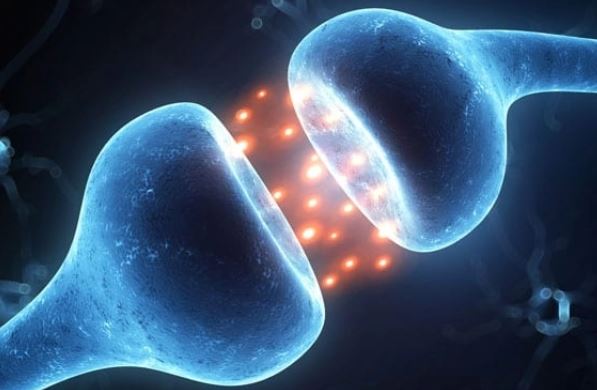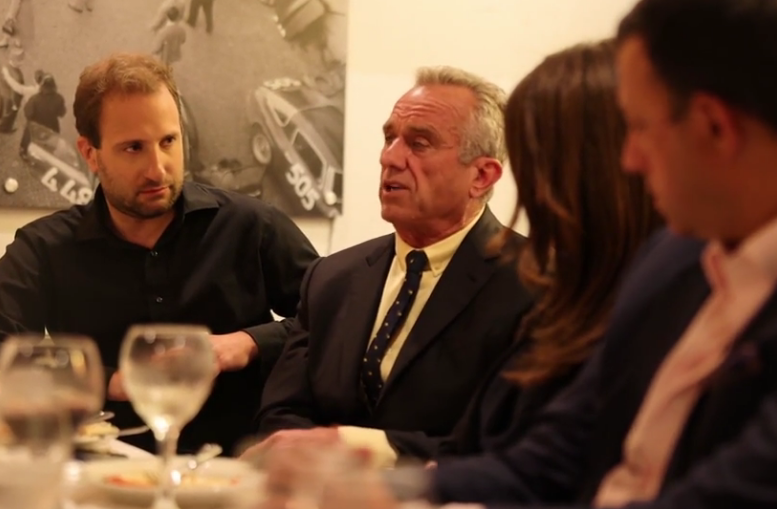Narcissistic Personality Disorder presents depressive symptoms — depression that is often weaponized to manipulate and control
09/09/2025 / By Lance D Johnson

Have you ever came across a person who commands every room, whose confidence borders on invincibility, whose self-assurance makes others feel small by comparison? These personality types radiate success, charm, and an almost magnetic allure—yet beneath the polished exterior lies a fragile, hollow shell, like a small child teetering on the edge of despair. This is the paradox of grandiose or overt narcissism — which is one of the most obvious types of narcissistic personality disorders (NPD).
With this specific type of narcissism, grandiosity isn’t strength; it’s a desperate armor against an inner world of insecurity, shame, and depression. New research confirms what many survivors of narcissistic abuse have long suspected: these emotional vampires aren’t just toxic to others—they’re slowly drowning in their own misery. And if you’ve ever been ensnared by one, you know the cost isn’t just emotional; it’s a theft of peace, sanity, and sometimes even years of your life.
But here’s the twist: their suffering doesn’t excuse their destruction. Narcissists may be depressed, but their depression fuels a cycle of manipulation, control, and emotional warfare against those closest to them. They don’t just feel superior—they need you to believe it, too. And when reality contradicts their delusions, their fragility turns venomous. So how do you spot them before they drag you into their storm? And more importantly, how do you break free without losing yourself in the process?
Key points:
- Narcissism isn’t just arrogance—it’s a mask for deep-seated depression, insecurity, and shame, making narcissists both predators and victims of their own minds.
- Grandiosity and vulnerability are two sides of the same coin: while grandiosity demands worship, vulnerability lashes out at any perceived threat, fueling depressive spirals.
- Narcissists lack empathy not because they can’t feel, but because they refuse to—their survival depends on controlling others’ perceptions to avoid facing accountability for their actions and to avoid facing their own emptiness.
- You can’t fix them, but you can outmaneuver them—by recognizing their patterns, setting ironclad boundaries, and refusing to feed their need for chaos.
The depression beneath the throne: Why narcissists are their own worst enemies
At first glance, narcissists seem untouchable. They dominate conversations, demand admiration, and dismiss criticism with a wave of superiority. But according to a study published by researchers from the University of British Columbia, University of Sherbrooke, and Penn State University, that invincible facade is a lie they tell themselves—one that’s crumbling under the weight of their own emotional instability.
The study, led by psychologists David Kealy, Olivier Laverdière, and Aaron Pincus, examined 99 psychiatric outpatients and found that narcissistic vulnerability—the hypersensitive, self-pitying side of narcissism—is strongly linked to depression. Unlike grandiosity, which screams “I am god!”, vulnerability whimpers “Why doesn’t the world worship me?” and lashes out when it doesn’t. This isn’t just sadness; it’s a persistent, intrusive loop of negative thoughts that narcissists can’t escape because they lack the emotional tools to process them.
Think of it like a king who’s secretly terrified his subjects will realize he’s just a man. Every slight—real or imagined—becomes proof of betrayal. A coworker’s promotion? An attack. A partner’s exhaustion? Rejection. The world isn’t just unfair; it’s conspiring against them. And because they can’t regulate these emotions, they project them outward, turning their pain into weapons: gaslighting, blame-shifting, and emotional blackmail.
Dr. Margalis Fjelstad, a therapist specializing in narcissistic abuse, puts it bluntly: “Narcissists don’t just lack empathy—they fear it. Empathy would force them to acknowledge that other people have valid feelings, and that would shatter their delusion of superiority.” So instead, they rewrite reality. Your hurt? You’re “too sensitive.” Their cruelty? You “made them do it.” Their failures? Always someone else’s fault.
And here’s the kicker: they believe their own lies. At least, they have to. Because if they didn’t, the depression waiting beneath would swallow them whole.
The 15 warning signs: How to spot a narcissist before they destroy you
Narcissists don’t announce themselves with a neon sign. They slip in like a charming parasite, mimicking love, friendship, or professional respect—until you’re so entangled in their web that escaping feels impossible. But they do leave clues. Fifteen of them, according to Dr. Fjelstad’s clinical work. Memorize these, because recognizing them early could save you years of grief.
- Grandiosity that demands worship: They’re not just confident—they’re convinced they’re superior. Their opinions are facts. Their preferences are laws. And if you dare disagree? You’re not just wrong; you’re stupid for thinking otherwise.
- Relentless attention-seeking: Ever met someone who turns every conversation back to themselves? That’s not accidental. Narcissists starve without admiration, and they’ll drain you dry to get it.
- Perfectionism that’s really tyranny: They don’t just want things done well—they want them done their way. And if you fall short? Prepare for contempt, not constructive criticism.
- Control disguised as “help”: They’ll “guide” your decisions, “manage” your time, even “fix” your flaws—because deep down, they can’t stand the idea that you might succeed without them.
- Zero accountability: Mistakes? In their mind, you made all the mistakes and they are the victim. Failures? It’s always someone else’s fault. Narcissists rewrite history to preserve their image of flawlessness.
- No boundaries—because in their mind, you don’t deserve them. Your time? It’s theirs. Your emotions? It’s their fuel. Your belongings? These are theirs to use as they please.
- Insecurity masquerading as strength: That “unshakable” confidence? It’s paper-thin. A wrong look, a sarcastic comment, a perceived slight—anything can trigger their rage or self-pity.
- Teamwork? Not in their dictionary: Narcissists don’t collaborate—they dictate. Your ideas are threats; your success is an insult.
- Empathy? What’s that? They don’t just not care about your feelings—they resent them. Your pain is an inconvenience; your joy is a competition.
- Deflection like a pro: Confront them, and they’ll twist your words, play victim, or attack you for daring to challenge them. The goal? Never face the truth.
- Blaming you for their crimes: They cheat? You “drove them to it.” They lie? You “made them feel trapped.” Their sins are always your fault.
- Trust issues (that you’ll see through them): Narcissists assume everyone is as deceitful as they are. They accuse you of betrayal to justify their own disloyalty.
- Anxiety: They dump on you. Their fears become your problems. Their stress becomes your failure to “support” them. You’re their emotional punching bag.
- Shame they’ll never admit: Beneath the arrogance is a black hole of self-loathing. But they’ll bury it under rage before they let you see it.
- Love? They don’t know the meaning: They mimic affection to keep you hooked, but real connection terrifies them. You’re a supply, not a soul.
How to escape the narcissist’s maze without losing your mind
Here’s the hard truth: You can’t save them. Narcissists rarely change because change requires humility, and humility is the one thing they can’t afford. But you can save yourself—if you’re willing to stop playing their game.
- Stop arguing with a mirror: Narcissists don’t debate—they perform. Their goal isn’t truth; it’s dominance. Engaging them is like wrestling a pig: you both get dirty, but the pig likes it.
- Set boundaries: like your life depends on it (because it does). Narcissists hate boundaries because boundaries mean they can’t control you. Start small: “I won’t discuss this when you’re yelling.” Then enforce it. No exceptions.
- Gray rock method: Be as exciting as a stone. Narcissists feed on emotional reactions. Starve them. Short answers. No drama. Boring wins.
- Document everything: Gaslighting thrives in he-said-she-said chaos. Keep records. Emails. Texts. Reality is your armor.
- Build a support system they can’t infiltrate: Narcissists isolate their targets. Fight back by strengthening bonds with people who see the truth.
- Prepare for the smear campaign: When you resist, they’ll lie to turn others against you. Stay calm. Stay consistent. Their masks slip under scrutiny.
- Go no-contact if you can: The only sure way to get back your mind, your emotions, and the truth? Stop playing. Block them. Leave. Your peace is worth more than their presence.
- Heal the wounds they left behind: Narcissistic abuse rewires your brain to expect betrayal. Therapy, journaling, and relearning trust are essential. You’re not “too sensitive”—you were targeted.
The final truth: Their depression is not your burden
Yes, narcissists are often depressed. But their depression doesn’t make them innocent—it makes them dangerous. They’ll use their pain as a weapon, demanding sympathy while refusing accountability. They’ll play the victim to manipulate you into compliance. And if you stay, you’ll drown with them.
So here’s your permission slip: Walk away. Not with anger, not with guilt—with the cold, clear knowledge that some fires exist only to burn those who try to warm their hands by them. Your job isn’t to fix them. Your job is to survive them. And then? Thrive.
Sources include:
Submit a correction >>
Tagged Under:
Brain, covert narcissism, depressive narcissism, emotional blackmail, emotional boundaries, emotional vampires, gaslighting signs, grandiosity mask, gray rock method, healing from narcissists, mental, mental health survival, mind games, narcissistic abuse, no contact rule, personality disorders, psychological manipulation, Psychological Warfare, red flags in relationships, self-protection strategies, toxic relationships, trauma recovery
This article may contain statements that reflect the opinion of the author





















